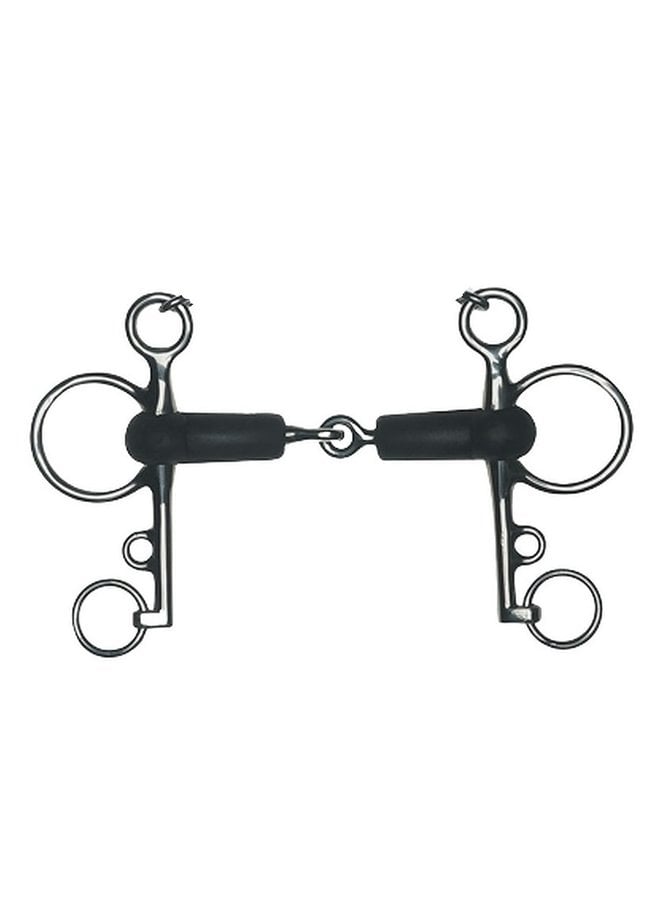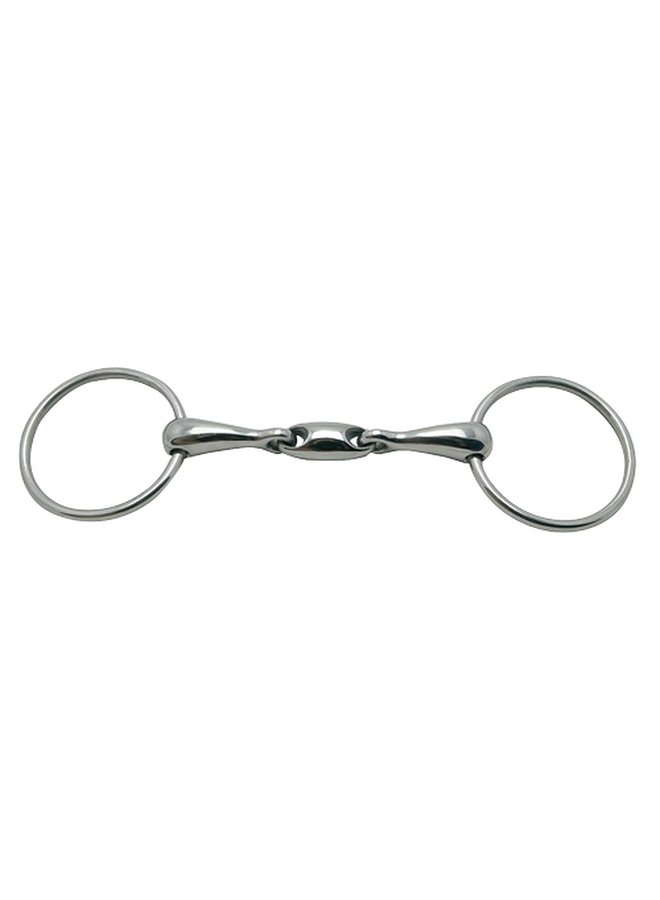Product description
Pelham:
- A pelham is a bit with a curb chain and shanks, which gives pressure behind the ears and creates leverage.
- A short-shanked pelham is also called baby pelham, and a long-shanked pelham is a common pelham.
- The length of the shanks and the chin strap or curb chain determine the strength of the impact.
The longer the shanks, the sharper the effect. - A pelham can be used with 2 reins; The one rein on the top ring for a soft grip
and the other rein on the bottom ring for pelham leverage. - You can also use one rein by means of a connecting strap (Bridge), to which the rein is attached.
- The use of a pelham makes it easier to set a horse deeply and is often used with stronger horses.
- The pelham is not suitable for inexperienced riders or horses, this bit can work quite strongly.
Single Jointed
- A single jointed bit has a hinge point in the middle that puts pressure on the lips, layers and sides of the tongue. A single jointed bit squeezes the tongue slightly under pressure and puts less pressure on the tongue.
- A single jointed bit rises slightly in the middle and can sting the palate. In this case is it better to choose a double-jointed or straight mouthpiece.
- A single jointed bit is a good basic bit, suitable for many horses and riders.
Description rubber & plastic bits:
- A rubber bit can be flexible, but also can contain a hard core. The flexible rubber bit has a steel wire running through is, so the bit can not break. The flexible bit is softer.
- Black rubber has the disadvantage that if a horse has a drier mouth, the bit gets hot by friction and then can burn on the tongue. When a horse produces enough saliva, a rubber bit is the softer variant of a metal bit. The plastic variant is smoother and doesn’t have this problem.
Reviews
Recent articles

Metal AB
Pelham jointed rubber
£69.97

Metal AB
Loose Ring Double Jointed - 18mm
£30.59


